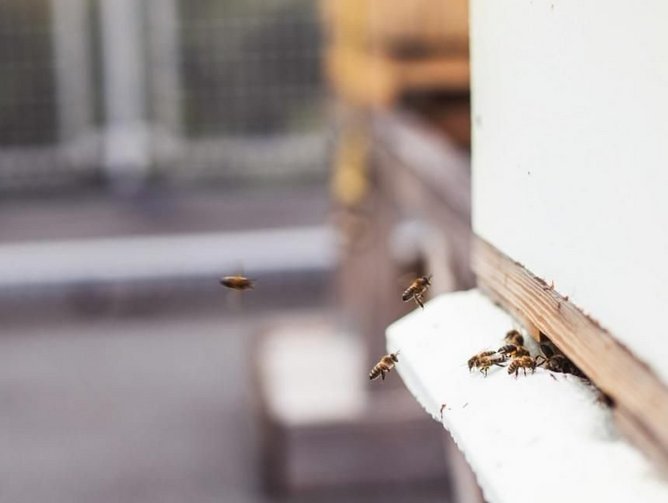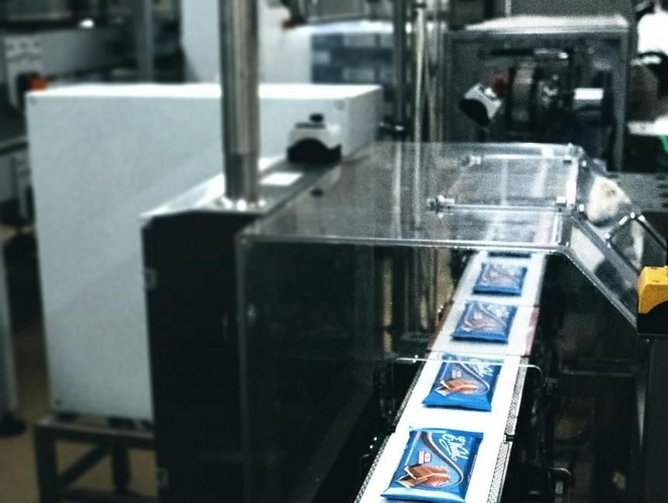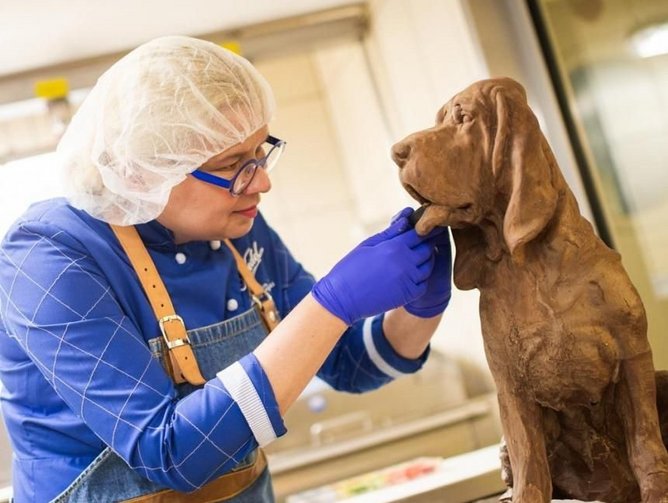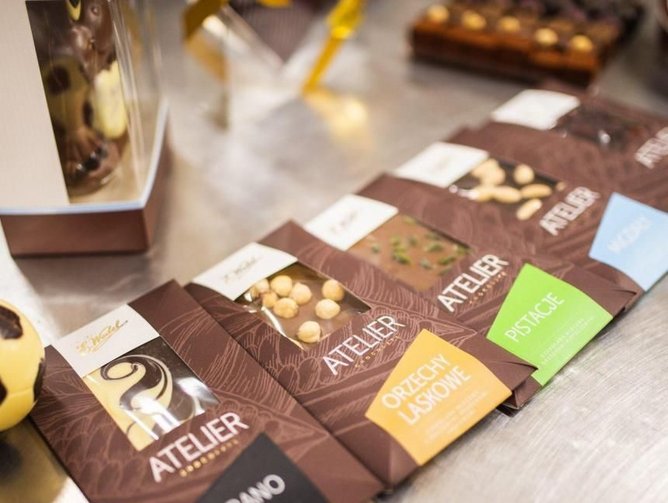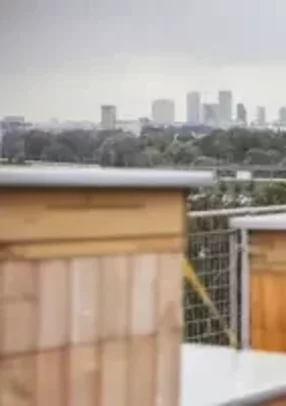LOTTE Wedel: driving innovation for a sustainable business
“Supply chain is a challenging role; complexity constantly grows to reflect business needs, products, developing technology, optimisation and efficiency,” says Slawomir Kluszczyński, Chief Operating Officer (COO) at LOTTE Wedel. For a business that has a vast amount of history and tradition, it is important to balance innovation with a legacy that has seen it win the hearts of chocolate lovers worldwide since 1851.
“Our industry is continuously changing,” notes Kluszczyński, “in particular our consumers are becoming increasingly aware of the impact of not having a sustainable business. The industry is not waiting, it is doing everything it can to support sustainability, and so is Wedel. It is a core part of our company values, a lot of our activities are focused on our impact on the environment,” he continues.
When it comes to those company values, Wedel underwent a cultural transformation this year: “We have recently undertaken a number of activities in this area: we have redefined the mission and vision of Wedel and we have redefined organisational values. We began to build employee awareness in this area, both at the level of the entire organisation (culture research) and at the individual level. The next steps are to support employees with the tools and systems that will help us to operate in accordance with the the new organisational culture. All of this is to develop the competencies that will provide Wedel with an innovative view, and quick solutions that will help achieve the goals set in our long-term strategy,” Kluszczyński explains.
Current ways in which Wedel is driving sustainability throughout its business include, water and energy saving solutions, zero-waste activities and reduced plastic and paper usage. “We have a zero-waste policy, sensors that limit the use of both water and electricity have been implemented throughout the business. In addition, we use mobile solutions and applications to reduce the need for paper printing, as well as streamlining the amount of printing machines available,” says Kluszczyński. “When it comes to plastic waste, we have eliminated it from our canteens, replacing plastics with biodegradable substitutes. Where we still need to use it, we reuse as much as possible in order to reduce our impact on the environment.”
However, it is not only company implementations that are driving Wedel’s sustainability focus. “We work with suppliers and partners in logistics, that share our environmental goals as well as educate our employees on environmental best practices, including workshops detailing correct waste segregation,” explains Kluszczyński. Wedel is currently in the process of developing its CSR strategy, which will incorporate a long-term sustainability plan. It is expected to be announced in early 2020.
Besides that, Wedel already undertakes many social responsible activities. For example, the company cooperates with NGO’s, partners and institutions: “We are very close with Praga-Południe, where our factory has been located since 1930. As a result, we are involved in many local activities: we support our neighbour, The Praga Museum of Warsaw; we participate as a strategic partner in Polish-German Gardens, which works to revitalise the park near our factory; and we are titular sponsor of ‘Wedel’s Run’, which has run for 16 years,” Kluszczyński says.
“We appreciate long-term cooperation. An example of this type of work and partner is Stowarzyszenie Serduszko dla Dzieci (Heart for Children Association), with which we've already done many interesting projects,” he continues. “For example, the foundation’s proteges take care of hives located on Wedel’s factory rooftop while learning the basics of entrepreneurship and sensitising to environmental issues. We also support the construction of a city farm in Wawer (Warsaw’s district), which will be a friendly educational space enabling children and adults to enjoy the benefits of nature as part of gardening and farming workshops. Our employees are involved in gardening and construction works, including those related to the construction of the playground.”
When it comes to having a sustainable business for long-term growth, “innovation is needed to bring increased value to changing customer demand and industry trends,” says Kluszczyński. “At Wedel, this way of thinking is ingrained in the mindset of our people. We call this process ‘Kaizen’ – to change for the better. Wedel is in the early stages of its industry 4.0 development strategy,” Kluszczyński continues. In the last couple of years the company has begun to develop and implement innovative technology to transform its operations.
To compete with increasing quantity demands of its ‘Ptasie Mleczko®’ products, Wedel has developed innovative industrial-sized technology to allow a faster decorative process. In addition, it utilises sophisticated machinery to perfect its packaging process to remove preservatives: “We have developed a tray with a unique foil that prolongs the freshness of the product inside,” says Kluszczyński. The company has also been utilising iTRAK, the Intelligent Track System by Rockwell – the most innovative motion solution on the market today – to standardise its product cartoning process by implementing magnetic drives.
When it comes to digital transformation of its systems, Wedel is working on a scheduling tool to strengthen the company’s production line. “We are currently in the last development stage to digitally transform our scheduling system used for inventory management. With this new technology – which we have begun to use some aspects of – we will be able to optimise our processes to reduce cost and achieve a more efficient production line. To develop this system we have been utilising IBM’s sophisticated algorithms,” Kluszczyński notes.
For Wedel, Artificial Intelligence (AI) and machine learning, is still conceptual, with discussions for using automation in its packaging processes underway. However, Wedel has begun gathering data to build the foundations for rolling out these innovative technologies. In addition, it is utilising 3D printing for its products. “We currently use the technology for sample products and the manufacturing of spare parts for some equipment,” highlights Kluszczyński. We use advanced technologies during consumer research in order to get to know our present and future clients’ needs in the best way. By analysing the micro-expressions of the face, or the brain’s areas of activity, we are able to understand the types of emotions and reactions that our products awaken. Knowledge acquired in this way has been used to redesign of Ptasie Mleczko® packages, for example,” explains Kluszczyński.
Other key areas the company is focused on include factory expansions and exporting products. Currently, export makes up 10% of the company's turnover and Wedel’s products can be found in over 60 countries. The company also looks to other directions including, for example, Russia. “We are spending a lot of resources and efforts to achieve our investments,” says Kluszczyński. “Our factory expansions have included new products, hybrid warehousing, IT systems and production machinery; this expansion is scheduled to be complete in 2021. In addition, we are continuing to work on exporting to Russia. Today the economic climate is much better now, both in terms of currency rate, custom duties and increased acceptance of foreign products.”
When it comes to partners, Wedel’s key long-term partnership is with its owner LOTTE. For both LOTTE and Wedel this partnership is mutually beneficial in that it provides further market access and helps to develop innovative products and business operations. At the same time, cooperation between Wedel and LOTTE is based on partnership. Wedel is autonomous and is locally managed: “The reason for this is that LOTTE trusts us and knows that we have the best knowledge of the Polish confectionery market and the most experience in running a legendary chocolate company. People create Wedel. This is why they continue to have the greatest impact on our organisation, our products, our communication and our relationship with the environment. The company's long-term strategy is being developed and enforced in Poland,” explains Kluszczyński.
He also emphasises that “Wedel is very proud to partner with big international and local networks and suppliers. We collaborate with pride, achieving sophisticated solutions and tailor-made offers for customised products. In return we are present in a wide network and benefits from long-term sustainable business partners.”
Reflecting on the company’s transformation to date, Kluszczyński believes Wedel’s biggest success is its ability to maintain its heritage products while continuing to innovate and transform in order to keep up with changing industry trends. This is reflected in the company’s mission: ‘We are constantly changing to make us and our clients happy’. Kluszczyński attributes the company’s overall ability to achieve this to its people, explaining that “we value our people at Wedel. Our Wedel family’s dedication to ‘Kaizen’ is what drives our success. Also, continuous improvement is inscribed in one of our organisational values - I question the status quo.
“Ultimately, at Wedel, we always want to have our heritage of guaranteed quality and the best taste. At this point, I would like to mention our other value: ‘I provide quality’. However, Wedel wants to continue to strive towards a more sophisticated factory that has the capacity to harness innovative technology. As a result we will have the ability to keep up with customer demand and changing trends, to further drive a sustainable business both environmentally and operationally,” concludes Kluszczynski.
